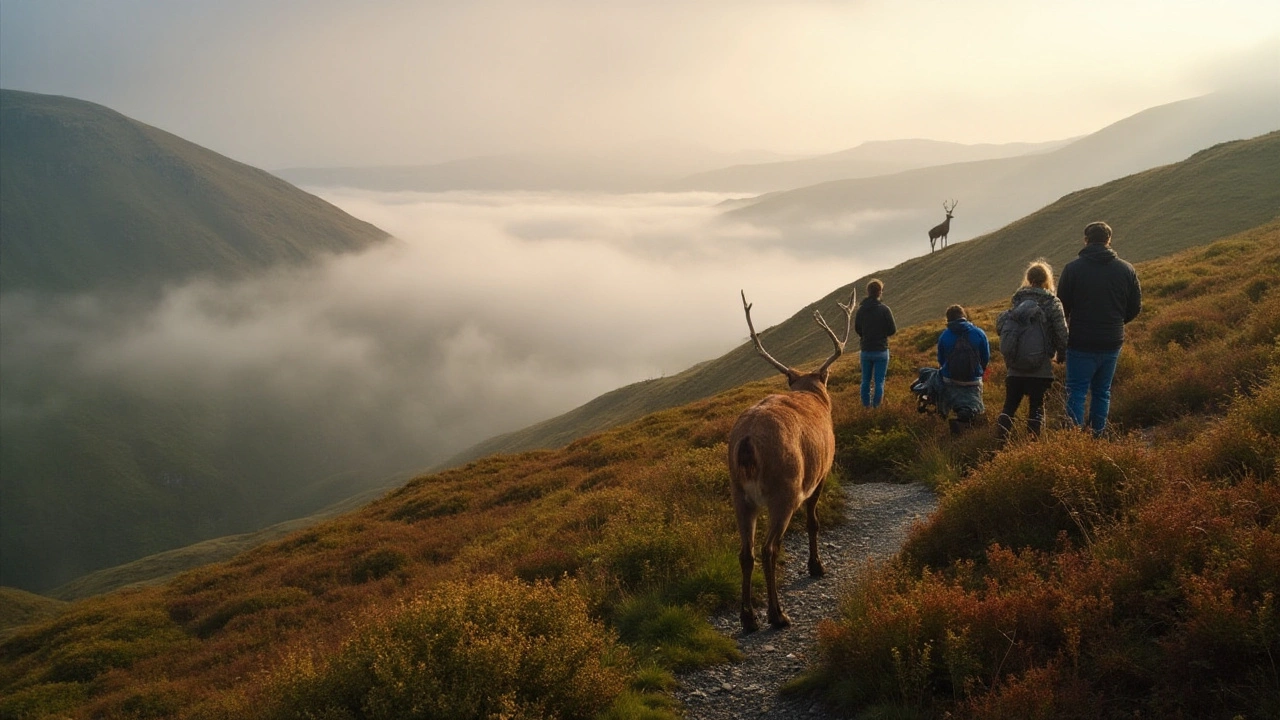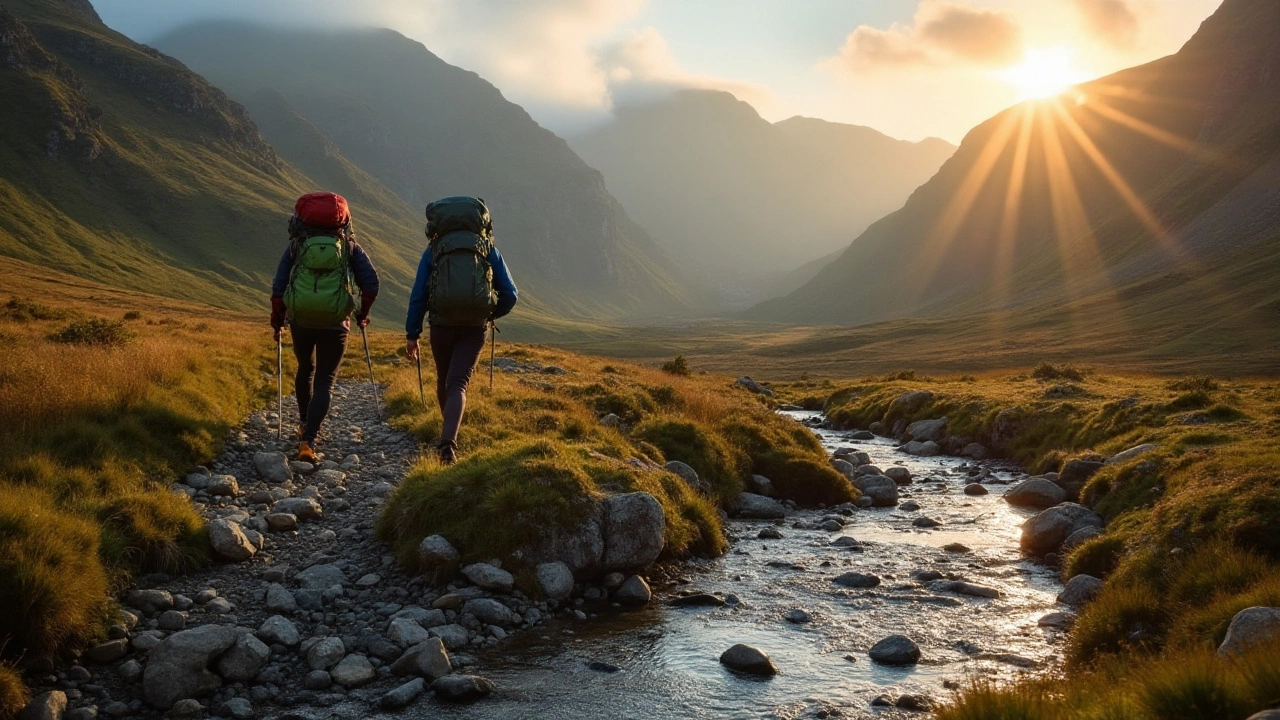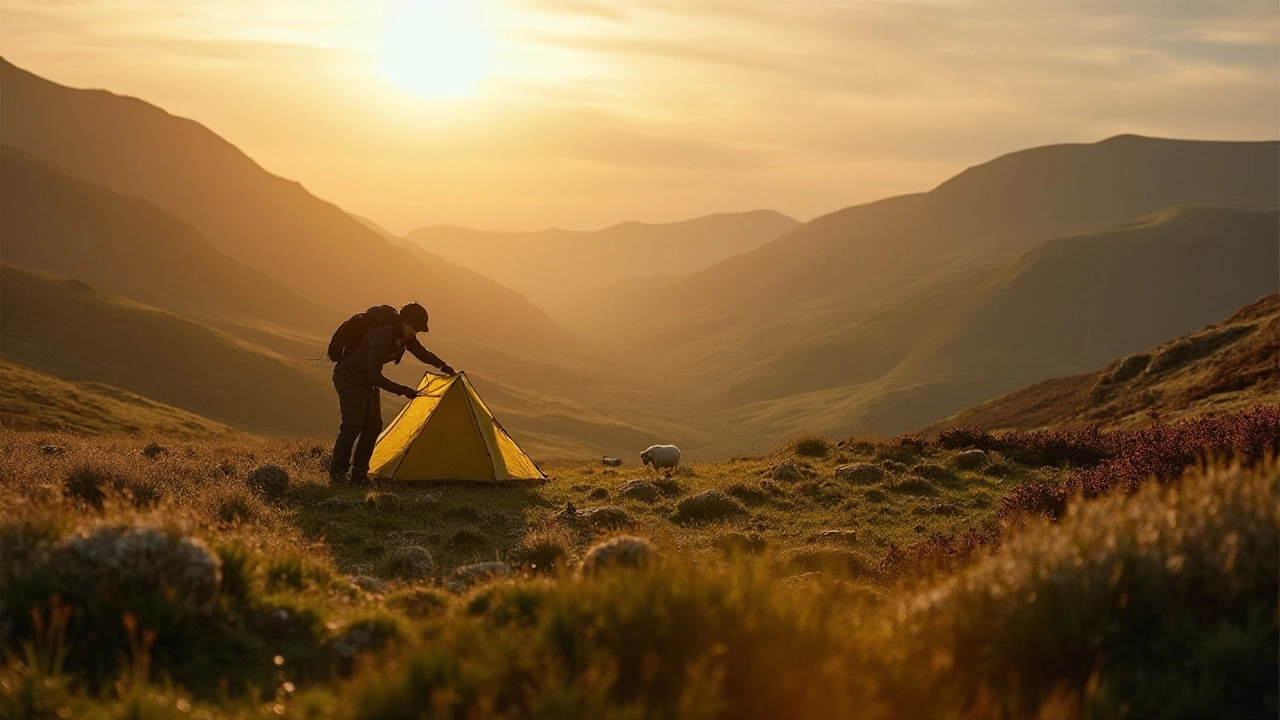Wild camping in the UK is an exhilarating escape into nature, a chance to disconnect from the buzzing world and tune into the melodies of chirping birds and whispering trees. But before setting out on your adventure, it's crucial to know the ins and outs of this beloved pastime.
The UK has its unique set of rules that govern wild camping, designed to ensure that the country's stunning landscapes remain pristine and untouched for future generations. Whether you're pitching your tent by a serene Scottish loch or in a charming Welsh valley, this guide will arm you with the necessary knowledge to do so responsibly and legally.
From understanding the legal nuances to respecting the UK's diverse fauna and flora, we'll dive into everything you need to ensure a successful wild camping experience. Whether you're a seasoned adventurer or a beginner, these insights will enhance your journey into the UK's wilderness.
- Understanding the Legal Landscape
- Respecting Local Wildlife and Environment
- Finding Prime Wild Camping Locations
- Essential Wild Camping Gear
- Safety Tips and Best Practices
Understanding the Legal Landscape
Wild camping in the UK presents a unique set of challenges and responsibilities when it comes to legalities. In England and Wales, the general rule is that land is private and requires the landowner's permission for wild camping. This means spontaneous camping without permission could lead to being asked to move, although many campers find that being courteous and leaving no trace can often open doors for future access. Scotland, on the other hand, offers a different experience with its
Respecting Local Wildlife and Environment
When you venture into the serene beauty of the UK's wilderness for some wild camping, respecting the local wildlife and environment is paramount. These natural habitats are not only home to a variety of species but also serve as delicate ecosystems that thrive without human interference. While camping, ensuring minimal impact on these sanctuaries is essential. Staying on marked paths as much as possible is crucial, as this prevents human traffic from trampling over sensitive plant life and causing erosion that can disrupt the natural terrain.
Another significant aspect to consider is dispossession. Leaving no trace behind is not just a friendly suggestion, it's the golden rule of wild camping. This means taking all your waste with you, including biodegradable items. Though they might decompose faster, they can introduce foreign substances into the ecosystem. Incorporating the principle of a leave-no-trace ethic will allow you to enjoy nature without leaving a negative print. Emphasizing conscious consumption can also make a massive difference. Only taking what you need and reusing or recycling what you can helps reduce the amount of waste you're responsible for.
Ensuring that your presence does not disturb the local fauna is yet another key element. The UK hosts a remarkable array of wildlife, from the elusive red deer found in Scottish Highlands to the playful seals dotting the Welsh coast. Respecting their habitats entails minimizing noise levels, avoiding using artificial lights at night, and keeping a safe distance from animals to prevent stress or disruption of their natural routines. As noted environmentalist David Attenborough once said, "The question is, are we happy to suppose that our grandchildren may never be able to see an elephant except in a picture book?" This perfectly encapsulates the spirit of preserving wildlife for future generations.
If cooking outdoors is part of your camping experience, utilize reusable pots and pans to further embrace environmentally conscious practices. Campfires, while providing warmth and ambiance, should be made using dead wood from the ground rather than breaking branches off live trees, which can cause harm and disrupt growth. Better yet, instead of open fires, using portable stoves can decrease the risk of uncontrollable fires. When considering all these practices, one cannot forget the invaluable role of water. Taking care not to pollute fresh water sources when washing or cooking is important, as even small contaminants might affect aquatic wildlife.
In recent years, data has revealed that biodiversity loss in the UK is occurring at an unprecedented rate. A recent report highlighted that since the 1970s, there has been a 41% decrease in species abundance, underscoring the urgent need for responsible outdoor practices. Camping with a sense of purpose and a responsibility to protect these natural resources is vital. Efforts to educate and encourage fellow campers on adopting sustainable habits during their excursions can have a ripple effect, ensuring that these breathtaking wilderness areas continue to be shared and enjoyed in perpetuity. Wild camping can indeed be a transformative escape for many, enhancing not just our personal peace but our commitment to environmental stewardship as well.

Finding Prime Wild Camping Locations
Embarking on a wild camping adventure in the UK reveals a treasure trove of breathtaking landscapes, each offering its unique charm and sense of seclusion. From the rugged Highlands of Scotland to the rolling hills of the Lake District and the serene beaches of Wales, the UK is brimming with idyllic spots that cater to every camper's dream. A keen eye for detail and a spirit of exploration can uncover hidden gems that promise a memorable experience. It's not just about finding a spot to pitch your tent; it's about choosing a location that resonates with your desire for tranquility and unspoiled beauty.
In Scotland, wild camping is encouraged and embraced thanks to the Land Reform (Scotland) Act 2003, which allows responsible camping. This means you can freely roam areas like the Cairngorms or Loch Lomond and find yourself under a canopy of stars undisturbed by city lights. Snowdonia in Wales is another remarkable spot, where dramatic mountain landscapes meet serene lakes, offering unparalleled peace. For those seeking coastal beauty, Pembrokeshire's secluded coves present perfect opportunities for a night under the sky. "The real voyage of discovery consists not in seeking new landscapes, but in having new eyes," wrote Marcel Proust, capturing the essence of wild camping's allure.
When choosing the perfect wild camping location, consider the impact on the environment as paramount. Camp well away from roads and heavily trafficked paths to minimize disturbance. Bodies of water can offer picturesque settings, yet it’s essential to pitch your tent at least 30 meters away to protect the fragile ecosystems. Each decision made while selecting your spot should underline the commitment to 'leave no trace', ensuring that nature remains as you found it. This ethos is central to maintaining the delicate balance of these stunning landscapes.
While many locations provide ample opportunity for wild camping, certain areas are especially renowned for their suitability. Dartmoor National Park in England is one of the few places in the country where wild camping is permitted on designated land. Its sweeping moorlands and granite tors provide a sense of wilderness that many crave. The Lake District, with its vast stretch of lakes and fells, also offers secret spots where you can quietly immerse yourself in nature. Though wild camping here is technically not legal without landowner permission, with discretion and respect, it is often tolerated
For those new to wild camping, apps and online platforms can be invaluable resources for discovering lesser-known locations. These tools connect campers with local knowledge, offering insights into perfect spots and conditions while maintaining the spirit of advocacy for responsible camping. Joining communities online, where seasoned campers share experiences and tips, can also enhance your adventure, ensuring that you find not just a campsite but a personal sanctuary.
Essential Wild Camping Gear
When it comes to wild camping in the UK, having the right gear can spell the difference between an unforgettable adventure and a tiresome ordeal. The core focus should be on items that both minimize weight and maximize safety. To start with, your camping rules toolkit must include a quality tent. Opt for something weather-resistant, as the British Isles are known for their erratic weather patterns. Consider a two-layer tent with a waterproof flysheet for added protection. Lightweight options are ideal for backpacking, striking a balance between comfort and portability. A good sleeping bag is your next key piece. Look for a bag designed to withstand the specific temperatures of your destination. An insulated sleeping mat also matters, cushioning against rocky terrain and providing essential warmth.
Navigation is another crucial element, particularly when camping on untamed terrains. A map and compass should be staples, even in this age of technology. Electronics can fail, but these traditional tools won’t let you down. Wild camping UK enthusiasts often recommend carrying a reliable GPS device too. Food supplies should be easy to prepare and pack. Dehydrated meals save space and time, and it’s beneficial to have high-energy snacks like nuts or dried fruits for quick boosts. Cooking gear typically involves a compact stove and fuel source, although check local restrictions on open flames. A lightweight pot and spoon will suffice, and don’t forget to pack a rubbish bag, aligning with the 'leave no trace' ethos.
Staying hydrated is critical, yet carrying large volumes of water can be impractical. A portable water filter or purification tablets are excellent solutions to make use of natural water sources responsibly. Don’t skimp on suitable clothing. Choose layers that let you adapt to changing conditions - thermal tops, waterproof jackets, and durable hiking boots are a must. Safety equipment is essential, and a first-aid kit should be readily accessible. Include plasters, antiseptic wipes, and painkillers, at the very least. A multi-tool can serve multiple purposes, from meal prep to making small repairs. Illumination depends on the lighting, but a headlamp and spare batteries are indispensable during nighttime.
"A successful outdoor adventure is one where you don’t underestimate the power of preparation," highlights Chris Townsend, an expert in outdoor gear and survival.
Additionally, consider investing in a power bank for emergency charging of devices. And don't forget the benefits of good trekking poles, especially helpful over uneven paths. Let’s not overlook hygiene - biodegradable soap, a quick-dry towel, and toilet paper should find their way into your pack. Those who adhere closely to these packing principles often find themselves better prepared for the unpredictability of wild camping adventures. A smart camper always balances the excitement of exploration with the awareness of nature's capriciousness, prepared to face any surprises the British landscape might spring.

Safety Tips and Best Practices
When embarking on a wild camping adventure in the UK, safety should be at the forefront of your mind. Preparing for your trip thoughtfully can make the difference between a smooth experience and a tumultuous one. Mother Nature can be unpredictable, so it’s essential to remain vigilant and ready for unexpected challenges. Pack wisely, ensuring you have all necessary provisions such as enough drinking water, a reliable source of light, maps, and a fully charged power bank for emergencies. Familiarize yourself with the terrain you'll be exploring; the UK's landscapes can range from flat plains to rugged mountains, and understanding them is key to ensuring you're equipped with the right gear.
Weather is another critical factor to consider since the UK is known for its highly changeable climate. Keep an eye on the forecast leading up to and during your trip. A sudden downpour could trigger flash flooding in certain areas, especially in valleys and low-lying grounds. It’s wise to find elevated ground for your campsite, and remember that some tents are better suited for harsh weather conditions than others. Having durable, waterproof camping gear can be a lifesaver. That said, learning how to safely build fires when necessary, especially in wet conditions, is a skill worth mastering.
Another vital aspect to remember while wild camping in the UK is your own physical safety. If you're unfamiliar with the location you're camping at, research the local wildlife and know any potential dangers they might pose. For instance, ticks can carry Lyme disease, and taking preventive steps like wearing long sleeves and using insect repellents could protect you. Bringing a basic first-aid kit can't be overstated either. It should include bandages, antiseptics, and crucial medications. The ability to administer first aid can make all the difference in remote settings where help isn’t immediately available.
Remember to share your intentions with someone trustworthy. Inform your friends or family about your camping plans—where you’re headed, the duration, and when you expect to return. This practice is not just about reassuring your loved ones but also ensuring there is someone to alert authorities should you go off-grid for too long. If you're venturing in regions like Scotland or remote parts of Wales, areas known for their breathtaking but isolated landscapes, this becomes even more crucial. Mishaps can happen to even the most seasoned of campers.
When it comes to maintaining a safe and lawful campsite, respect the land and landowners. In some areas, particularly around England and Wales, you may need permission to pitch a tent. Always leave the site as you found it—if not better. Adopt the 'leave no trace' principles: pack out all litter, ensure fires are completely extinguished, and use portable cookers instead of open fires where possible. Human waste should be buried away from water sources, or pack a portable toilet if feasible. Following these practices not only preserves the natural beauty of the location for future campers but also ensures the wildlife is not disturbed. Camping in the UK is an incredibly rewarding way to explore the country, but with that freedom comes the responsibility of stewardship.
